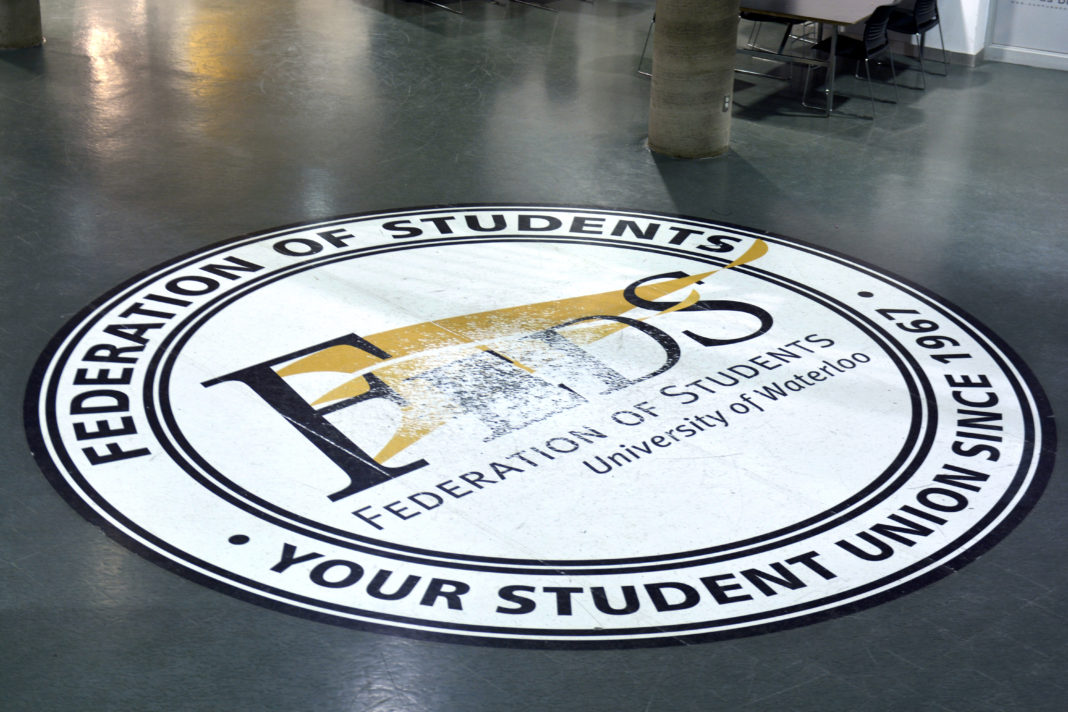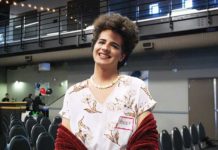A far cry from the 2017 Feds Executive elections, this year’s election cycle has seen an unprecedented lull. All Feds Executive candidates for President and the three VP positions ran unopposed this year, resulting in a win by acclamation. The following Feds positions were also acclaimed: arts student councillors, engineering student councillors, math student councillor, St. Jerome’s councillor, Stratford councillor, and arts senate seat. That is a total of 15 candidates who won by acclamation.
As Tyler Marques, elected science senator puts it, “UWaterloo students are notorious for being disengaged, not just in student elections, but in almost every non-academic aspect of the undergraduate experience.”
However, student disengagement is not an issue limited to the University of Waterloo, current Feds President Antonio Brieva said: “It’s not uncommon for other student associations from across the country to experience some ways of acclamations in their elections, we’ve been really fortunate to not have it as commonly as others.”
Students echo a number of reasons as to why they don’t get involved and run for Feds elections, ranging from the full-time requirement for the executive positions, to intense academic and co-op pressures, faculty attitudes, or simply because of issues with Feds as an organization itself.
Elected science councilor Benjamin Easton said, “As I’m in second year, I am not yet ready to commit to a year of full time work. Student Council and Senate are both part-time positions, meaning that I can continue my studies while serving. If I were to run for exec, I would do so in my last year of studies.”
“If somebody wants to run for a Feds executive position, they have to be willing to put their academic life on pause,” Matthew Gerrits, acclaimed VP Education, said.
Additionally, with the immense pressure of being a UW student and meeting highly competitive academic standards, students may feel the need to prioritize academics over all else.
Acclaimed Feds President Richard Wu, currently in his fourth year of biomedical science, describes juggling five courses, labs, three volunteer positions, as well as a part-time job by saying: “A big contribution to apathy is that we’re all students so we’re all crazy busy. You have co-op interviews, then you have PD to do, then all of a sudden you have five midterms on the same day, and then your part-time job. You have blinders on, and activities around campus are the least you’re concerned about, because you have deadlines, and you have things that you have to do for you.”
Add to the mix the pressures of co-op, and students may be too preoccupied with thoughts of “Cali or bust” to engage in student politics. Acclaimed VP Finance Kurt MacMillan describes having dropped out of co-op, and consequently being able to be a lot more involved with the University, which led him to run for a Feds executive position. MacMillan definitely believes co-op to be a barrier in student engagement.
Acclaimed VP Student Life Savannah Richardson suspects faculty cultures might also be at play. As part of the Applied Health Sciences faculty, Richardson says that the environment has always encouraged getting involved: “the culture is like, ‘let’s go, what can we do, where can we go.’ It really pushes the ‘get to know each other, build the community’ aspect. That’s what my experience has been.”
On the other hand, John Salaveria, a 4B software engineering student, describes that by being part of the engineering faculty, “you are definitely encouraged to engage in various aspects of engineering-oriented culture,” but that he and his colleagues don’t engage beyond the faculty in terms of anything Feds related. “None of my friends [were engaged] in the recent election party because it’s our last term and won’t affect our student life, but I believe it’s also mainly because we don’t know how Feds impacts our student life.”
Furthermore, Feds itself may contribute to the apathy. Third-year psychology student Annie Chen describes Feds as coming off as “highly exclusive,” and can be discouraging to those looking to involved. The enigma of Feds, the ambiguous terms and not knowing as much about the organization may be feeding into the apathy, according to Wu.
On the contrary, Easton states that he does not accept the narrative that students just don’t care about engagement: “Based on the conversations I’ve had with students, it seems that they wish to be informed before they engage in anything. So the error lies not within students, but within the institution’s communications to them. This problem goes beyond the shortcomings of Feds.”
Brieva believes the responsibility is on the candidates to engage students, as well as on the students to get informed and be willing to participate in student government, because the work being done is very important.
Wu thinks that at the end of the day, students make a rational decision when it comes to running for Feds executive positions and ask themselves, “how many things would I have to drop from my life to accommodate it?” Part-time positions such as senate, council, and volunteering allow students to make a big difference without having to sacrifice a lot from their own life, unlike Feds executive positions.
To those who are considering getting involved in student government, Brieva says, “if you’re thinking about it and it keeps on coming back to your head that you want to run, take the chance, put your name forward. It can be scary but in the end, you might regret not running. I welcome whoever is interested to come into our offices and talk to one of us about what our day to day looks like, or what we think it would take to become a Feds exec.”
Furthermore, Wu believes that students learn a lot from taking classes at UW, but the experience of being part of Feds is so valuable in terms of all facets of your life. If you’re thinking of running, he says, “do it, just do it.”
Lisa Umholtz, communications and media relations specialist for Feds adds that there are still open seats in arts and math council. Now that elections have wrapped up, students can run for these positions and there is a potential for by-elections.
































